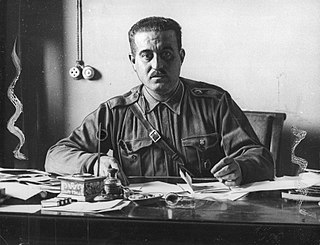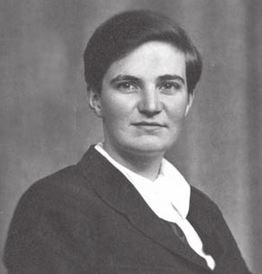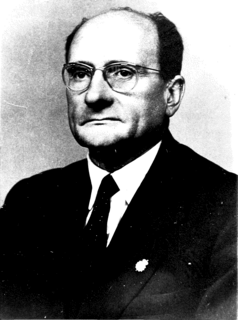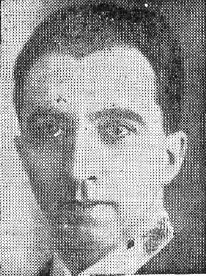 W
WAntònia Adroher i Pascual, born in Girona in 1913 and died in 2007 in Banyuls-sur-Mer, was a teacher and political activist from Catalonia, Spain.
 W
WMulk Raj Anand was an Indian writer in English, notable for his depiction of the lives of the poorer castes in traditional Indian society. One of the pioneers of Indo-Anglian fiction, he, together with R. K. Narayan, Ahmad Ali and Raja Rao, was one of the first India-based writers in English to gain an International readership. Anand is admired for his novels and short stories, which have acquired the status of classics of modern Indian English literature; they are noted for their perceptive insight into the lives of the oppressed and for their analysis of impoverishment, exploitation and misfortune. He became known for his protest novel “Untouchable” (1935), followed by other works on the Indian poor such as “Coolie” (1936) and “Two Leaves and a Bud” (1937). He is also noted for being among the first writers to incorporate Punjabi and Hindustani idioms into English, and was a recipient of the civilian honour of the Padma Bhushan.
 W
WFrancisco Antón Sanz was a Spanish communist leader. He is known as the lover of Dolores Ibárruri during and after the Spanish Civil War (1936–39). After the Republican defeat in 1939 he went into exile in France, Moscow, Mexico, Poland and Czechoslovakia. During an internal power struggle in the early 1950s he was ousted from the leadership of the Spanish Communist Party (PCE), but was later rehabilitated.
 W
WAntonio Arrúe Zarauz (1903–1976) was a Spanish politician and a Basque cultural activist. Politically he was a Carlist militant throughout all of his life; in the 1950s and 1960s Arrue informally led the Gipuzkoan branch of the party, and from 1957 to 1959 he held the official Traditionalist jefatura in the province. Form 1967 to 1971 he served in the Cortes elected from the so-called tercio familiar. He contributed to Basque culture mostly as organizer and administrator, during the Francoist era engaged especially in Euskaltzaindia. His input as linguist or ethnographer is moderate, though he excelled as one of the best Basque-language orators of his time.
 W
WPablo de Azcárate y Flórez was a Spanish diplomat. He was born in Madrid. During the 1920s he worked in Minorities Section of the League of Nations Secretariat. During the Spanish Civil War, Azcárate served as Ambassador of the Spanish Republican government to London. Following the British recognition of the Nationalist government in early 1939, he went into exile in Switzerland. From 1946 onward, he was attached to the UN. In 1948-1952 he served as secretary of the Consular Truce Commission in Jerusalem on behalf of the UN. Azcárate died in Geneva in 1971.
 W
WShapour Bakhtiar was an Iranian politician who served as the last Prime Minister of Iran under the Mohammad Reza Shah Pahlavi. In the words of historian Abbas Milani: "more than once in the tone of a jeremiad he reminded the nation of the dangers of clerical despotism, and of how the fascism of the mullahs would be darker than any military junta". He and his secretary were murdered in his home in Suresnes, near Paris by agents of the Islamic Republic.
 W
WIgnacio Baleztena Ascárate was a Navarrese folk customs expert, a Carlist politician and soldier
 W
WJaime del Burgo Torres was a Spanish official, writer and a Carlist activist. He is noted mostly as a historian; his works focus on Navarre and the Carlist wars. As a public servant he is known as longtime head of Navarrese library network, regional Ministry of Information delegate and a governmental and self-governmental tourist official. As a Carlist he is acknowledged as moving spirit behind the Navarrese Requeté in the 1930s and as representative of the Carloctavista faction during early Francoism. He also wrote novels, poems and dramas.
 W
WJesús de Cora y Lira, 1st count of Cora y Lira (1890–1969) was a Spanish military and a Carlist politician. In the navy juridical arm he rose to general auditor, a rank equivalent to counter-admiral. He is known mostly as political leader of Carloctavismo, a branch of Carlism which during early Francoism advocated a claim to the Spanish throne raised by Carlos Pio Habsburgo-Lorena y Borbón.
 W
WMikalai Dvornikau known under the pseudonyms Gerasim, Andrei, Anton, Stanislav Tomashevich, Robert and Petya was a Soviet Belarusian political militant, a member of the Communist Party of Western Belarus and the Communist Youth League (Komsomol) of Western Belarus. He was a participant of the Spanish Civil War, political instructor of the Jose Palafox battalion and commander of the Ukrainian interbrigade company Taras Shevchenko.
 W
WElisabeth Eidenbenz, was a teacher and a nurse and founder of the Mothers of Elne. Between 1939 and 1944, she saved some 600 children who were mostly the children of Spanish Republicans, Jewish refugees and gypsies fleeing the Nazi invasion.
 W
WFrancisco Estévanez Rodríguez was a Spanish politician, publisher, philanthropist, agrarian syndicalist and religious activist. He is best known as deputy to the Cortes during two terms between 1931 and 1936. Politically he was a Traditionalist, first member of the Integrist branch and then active within Carlism. He also published two small Burgos periodicals, continuously donated money and supported various charity schemes, strove to build rural trade unions which unite landholders and farmers, and was involved in numerous Catholic initiatives usually related to the Burgos archbishopric office.
 W
WManuel Fal Conde, 1st Duke of Quintillo (1894–1975) was a Spanish Catholic activist and a Carlist politician. He is recognized as a leading figure in the history of Carlism, serving as its political leader for over 20 years (1934–1955) and heading the movement during one of its most turbulent periods. Initially he led the belligerent faction pressing anti-Republican insurgency; during the Spanish Civil War he joined the Nationalists; later on he championed anti-Francoist strategy.
 W
WRicardo Gómez Roji (1881-1936) was a Spanish Roman-Catholic priest, scholar, publisher and politician. For 26 years he served as a lecturing canon by the Burgos cathedral, known locally for his oratory skills; he also taught theology at the Pontifical University of Salamanca, animated local Catholic agrarian trade unions, and edited and managed few Catholic periodicals and bulletins. His political career climaxed in 1931-1933; elected to the Congress of Deputies as a candidate of a broad local monarchist-Integrist-conservative alliance, he served one term within the Agrarian parliamentary minority. Afterwards he approached Carlism and advanced its cause as a propagandist.
 W
WWifredo Óscar de la Concepción Lam y Castilla, better known as Wifredo Lam, was a Cuban artist who sought to portray and revive the enduring Afro-Cuban spirit and culture. Inspired by and in contact with some of the most renowned artists of the 20th century, including Pablo Picasso, Henri Matisse, Frida Kahlo and Diego Rivera, Lam melded his influences and created a unique style, which was ultimately characterized by the prominence of hybrid figures. This distinctive visual style of his also influences many artists. Though he was predominantly a painter, he also worked with sculpture, ceramics and printmaking in his later life.
 W
WJosé María Lamamié de Clairac y Colina (1887-1956) was a Spanish politician. He supported the Traditionalist cause, until the early 1930s as an Integrist and afterwards as a Carlist. Among the former he headed the regional León branch, among the latter he rose to nationwide executive and became one of the party leaders in the late 1930s and the 1940s. In 1931-1936 he served 2 terms in the Cortes; in 1915-1920 he was member of the Salamanca ayuntamiento. In historiography he is known mostly as representative of Castilian terratenientes; as president of Confederación Nacional Católico-Agraria he tried to preserve the landowner-dominated rural regime, first opposing the Republican and later the Francoist designs.
 W
WSylvia Hope Leith-Ross was an English anthropologist and writer who worked primarily in Nigeria.
 W
WRicardo Eliécer Neftalí Reyes Basoalto, better known by his pen name and, later, legal name Pablo Neruda, was a Chilean poet-diplomat and politician who won the Nobel Prize for Literature in 1971. Neruda became known as a poet when he was 13 years old, and wrote in a variety of styles, including surrealist poems, historical epics, overtly political manifestos, a prose autobiography, and passionate love poems such as the ones in his collection Twenty Love Poems and a Song of Despair (1924).
 W
WJuan Olazábal Ramery (1860–1937) was a Spanish Traditionalist politician, first as a Carlist, then as an Integrist, and eventually back in the Carlist ranks. In 1899-1901 he served in the Cortes, and in 1911-1914 he was a member of the Gipuzkoan diputación provincial. Between 1897 and 1936 he managed and edited the San Sebastián daily La Constancia. He is best known as the nationwide leader of Integrism, the grouping he led between 1907 and 1931.
 W
WRomán Oyarzun Oyarzun (1882-1968) was a Spanish political activist, publisher, diplomat, entrepreneur and historian. He is best known as author of Historia del Carlismo (1939), for half a century a key reference work on history of Carlism and today considered the classic lecture of Traditionalist historiography. He is also acknowledged as member of the Spanish consular service, briefly editor of a daily El Correo de Guipúzcoa and a Carlist militant himself.
 W
WAileen Palmer was a British Australian poet and diarist. She worked as an interpreter during the Spanish Civil War for a mobile hospital and later in an ambulance unit in London during The Blitz. With a history of institutionalisation for various mental breakdowns, her diaries chart her exploration of her own sexuality and mental disease. Among her papers are many unpublished novels and an autobiographical compilation, which form a notable collection for scholars to evaluate both gender identities and mental illness in her era.
 W
WEzekias Papaioannou was a Greek Cypriot communist politician and Secretary General of the left-wing political party of AKEL.
 W
WJosé Pellicer Gandía was a Spanish anarchist, politician and revolutionary primarily known for being the founder of the Iron Column during the Spanish Civil War. He is often nicknamed the "Durruti valencià".
 W
WJuan Víctor Pradera Larumbe (1872–1936) was a Spanish political theorist and a Carlist politician.
 W
WJosé Robles Pazos was a Spanish writer, academic and independent left-wing activist. Born to an aristocratic family, Robles embraced left-wing views which forced him to leave Spain and go into exile in the United States.
 W
WManuel Sánchez Arcas (1897–1970) was a Spanish Modernist architect. During the Spanish Civil War (1936–39) he served in the Republican government as Undersecretary for Propaganda. After the Republican defeat he went into exile in Moscow, Warsaw and Berlin.
 W
WManuel Senante Martínez was a Spanish Traditionalist politician and publisher, until 1931 adhering to the Integrist current and afterwards active in the Carlist ranks. He is known mostly as the longtime editor-in-chief of the Madrid daily El Siglo Futuro (1907-1936). During 8 consecutive terms he served as the Integrist deputy to the Cortes (1907-1923).
 W
WMaurici de Sivatte i de Bobadilla (1901–1980) was a Spanish Carlist politician. He is known as leader of Catalan Carlism in two separate strings, briefly in the early 1930s and then in the decade of the 1940s. He is also recognized as the moving spirit behind RENACE, a Traditionalist splinter faction set up in 1958.
 W
WMarcial Solana González-Camino (1880–1958) was a Spanish scholar, writer and politician. In science he is best known as historian of philosophy and author of a monumental work on 16th century Spanish thinkers, though he contributed also to history, theory of law and theology. In politics he is recognized chiefly as a Traditionalist theorist of state, apart from his rather modest militancy within Integrism and Carlism. Throughout all his life he was also active in various lay Catholic organizations.
 W
WFrancisco Elías de Tejada y Spínola Gómez (1917-1978) was a Spanish scholar and a Carlist politician. He is considered one of top intellectuals of the Francoist era, though not necessarily of Francoism. As theorist of law he represented the school known as iusnaturalismo, as historian of political ideas he focused mostly on Hispanidad, and as theorist of politics he pursued a Traditionalist approach. As a Carlist he remained an ideologue rather than a political protagonist.
 W
WMaría Rosa Urraca Pastor (1900–1984) was a Spanish Carlist politician and propagandist. She is known mostly as a thrilling orator, one of the best public speakers of the Second Spanish Republic. She is also noted as head of Delegación Nacional de Frentes y Hospitales, the Nationalist wartime organization catering for the wounded.
 W
WJosé María Valiente Soriano was a Spanish Carlist politician.
 W
WCésar Abraham Vallejo Mendoza was a Peruvian poet, writer, playwright, and journalist. Although he published only three books of poetry during his lifetime, he is considered one of the great poetic innovators of the 20th century in any language. He was always a step ahead of literary currents, and each of his books was distinct from the others, and, in its own sense, revolutionary. Thomas Merton called him "the greatest universal poet since Dante". The late British poet, critic and biographer Martin Seymour-Smith, a leading authority on world literature, called Vallejo "the greatest twentieth-century poet in any language." He was a member of the intellectual community called North Group formed in the Peruvian north coastal city of Trujillo.
 W
WYuri Dmytrovych Velykanovych (ukr. Ю́рій Дми́трович Великано́вич; 1910, Turka, Galicia, Austria-Hungary, September 7, 1938, Ebro Valley, Spanish Republic) was a participant in the Spanish Civil War, Ukrainian interbrigadist, member of the Communist Party of Western Ukraine (CPWU).
 W
WJosé Luis Zamanillo González-Camino (1903–1980) was a Spanish Traditionalist politician. He is best recognized as leader of Carlist paramilitary Requeté structures during the Republic and as champion of Carlist collaborationist policy during mid-Francoism, though in the 1940s he maintained a firm anti-regime stand. He is also known as representative of the post-Francoist hard core in the course of early transition to parliamentary democracy. He served in the parliament in two strings of 1933-1936 and 1961-1976; in 1961-1976 he was also a member of the Francoist Consejo Nacional. In 1972-1976 he was a member of Consejo de Estado.
 W
WJosé Ángel Zubiaur Alegre (1918–2012) was a Spanish right-wing politician. Throughout most of his life he remained active as a Carlist militant and held some positions in the regional Navarrese party executive. In the 1970s he left the movement and contributed to birth of a Navarrista party, Unión del Pueblo Navarro. His career climaxed during the Cortes term in 1967–1971, when he strove to liberalize the regime and gained nationwide recognition. In 1948–1951 and 1983–1987 he served also in the regional Navarrese self-government.